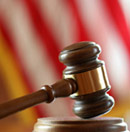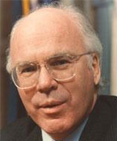|
|
|
New York City Public School Employee Pleads Guilty
Court Watch |
2006/12/15 08:37
|
| A New York City Public School custodial engineer pleaded guilty today to conspiring to defraud the New York City Department of Education and its predecessor, the Board of Education of the City of New York (collectively NYCDOE), the Department of Justice announced. Kenneth Loeffler, a custodial engineer and resident of Valley Stream, N.Y., pleaded guilty in U.S. District Court in Manhattan to participating in a conspiracy to commit mail fraud in connection with a kickback scheme used to defraud NYCDOE. Beginning in approximately July 1997 and continuing until at least June 2003, Loeffler received approximately $6,000 in kickbacks in exchange for allocating contracts for industrial cleaning and maintenance supplies to companies associated with his two unnamed co-conspirators. These kickbacks were paid through cash, dinners and tickets to sporting and theater events. “The Antitrust Division will prosecute anyone who subverts the competitive process, particularly where public monies are involved,†said Thomas O. Barnett, Assistant Attorney General in charge of the Department’s Antitrust Division. As a NYCDOE custodian, Loeffler was responsible for purchasing goods and services necessary for the maintenance of NYCDOE schools to which he was assigned. In July 1999, NYCDOE began requiring its custodians to engage in competitive bidding before making purchases or awarding contracts worth more than $250 to vendors who were not on NYCDOE’s list of approved vendors and to award contracts to the bidder who provided the “maximum quality for the minimum price.†Also under the competitive bidding policy, employees are required to submit bid summary sheets for each purchase and to get written bids for purchases or contracts worth more than $5,000. After NYCDOE’s implementation of the competitive bidding policy, Loeffler accepted kickbacks in exchange for ensuring that he would not invite potential competitors who were not co-conspirators to bid on contracts awarded by NYCDOE schools for industrial cleaning and maintenance supplies, the Department said. Also, the Department said that some of the kickbacks Loeffler received were the result of his participation in a phony invoice scheme whereby NYCDOE paid for supplies delivered only in part or never delivered at all. Today’s case is the second to arise out of an ongoing investigation of fraud and bidding irregularities in the award of contracts for industrial cleaning and maintenance supplies being conducted by the Antitrust Division, the Office of the Special Commissioner of Investigation for the New York City School District and the Federal Bureau of Investigation. In November 2006, a former NYCDOE custodial engineer pleaded guilty to conspiracy charges in connection with participating in a similar kickback scheme. Loeffler is charged with violating 18 U.S.C. § 371, which carries a maximum penalty of five years of imprisonment and a $250,000 fine. The maximum fine may be increased to twice the gain derived from the crime or twice the loss suffered by the victim, if either of those amounts exceeds the statutory maximum fine. |
|
|
|
|
|
|
Antitrust Division Announces Merger Review
Political and Legal |
2006/12/15 02:34
|
WASHINGTON-- The Antitrust Division announced today that it is amending its 2001 Merger Review Process Initiative in order to further streamline the merger investigation process to improve the efficiency of the Division's investigations while reducing the cost, time and burdens faced by parties to transactions that are reviewed by the Division. "Efficient merger enforcement" reaching the right answers as quickly as possible with the least burdens necessary "is one of our top priorities," said Thomas O. Barnett, Assistant Attorney General in charge of the Department's Antitrust Division. "The amendments to the Division's already successful Merger Review Process Initiative are part of our ongoing efforts to reduce enforcement burdens, while at the same time preserve our ability to conduct thorough investigations and protect consumers from anticompetitive transactions." The goal of the 2001 Merger Review Process Initiative was to help the Division identify critical legal, factual and economic issues regarding proposed mergers more quickly; facilitate more efficient and more focused investigative discovery; and provide for an effective process for the evaluation of evidence. The amended initiative is the culmination of an extensive internal review of the Division's best practices for investigating mergers and acquisitions, as well as an analysis of the progress the Division has made since first launching its initiative. The amendments announced today include a voluntary option that will enable companies to reduce significantly the duration and cost of merger investigations. The new option would limit the document search required by a Division information request, known as a "second request," to certain central files and a targeted list of 30 employees whose files must be searched for responsive documents. This option will be made available to parties to most transactions that are reviewed by the Division, and will be conditioned on certain timing and procedural agreements that, among other things, protect the Division's ability to obtain appropriate discovery should it decide to challenge the deal in federal district court. The Division is also changing its model second request to reduce compliance burdens further. For example, the default search period, which is currently three to four years depending on when the request is issued, will be reduced to two years prior to the date of the request's issuance. The changes also include other limitations that will reduce the volume of materials that companies must collect, review, and produce in response to a second request. The 2001 initiative enabled the Division to deploy its investigative resources more efficiently and effectively and reduce the investigative burden placed on parties to transactions that are reviewed by the Division. Largely as a result of the initiative, in an increasing number of matters the Division has been able to focus its investigations on discrete dispositive issues. The result has been an improvement in how quickly the Division is able to close investigations into transactions that prove not to be anticompetitive, which enables the Division to focus its resources more effectively on those transactions that do threaten competition. The number of days that pass from the opening of a preliminary investigation to the early termination or closing of the investigation, on average, has fallen from about 93 days to 57 days since the initiative was first announced. |
|
|
|
|
|
|
Latham Advises on Largest Energy Trans. in Asia
Law Firm News |
2006/12/14 10:59
|
A cross border team from Latham & Watkins' Hong Kong, Tokyo, Singapore and US offices advised the TEPCO/Marubeni consortium - comprising The Tokyo Electric Power Company Incorporated and Marubeni Corporation - on its winning bid to acquire Mirant Asia Pacific Limited in a deal that values the company at $3.4 billion. Tokyo Electric, Japan's largest power company, and Marubeni, an international power developer with over a century of experience in the Philippines, will each buy a 50-percent stake in Mirant Asia Pacific, whose unit Mirant Philippines is the biggest independent power producer in the Philippines. The two companies were the successful bidders in a highly competitive auction process conducted by Mirant and its financial advisor, Credit Suisse. The deal is the largest energy M&A transaction in the Asia Pacific region. The Latham team is led by Hong Kong managing partner Joseph Bevash and Tokyo partner Michael Yoshii, and comprises teams in Tokyo (of counsel Joseph Kim and associate Tsuyoshi Imai), Hong Kong (partners Mitchell Stocks and David Zhang, and associates Andrew Lam, Tim Gardner, Jie Fertig and Zheng Wang), Singapore (partner Mark Nelson), and the United States (partners Ted Sonnenschein, Larry Stein and Joel Mack, and associate Pardis Zomorodi). |
|
|
|
|
|
|
US Senator challenges war on terror methods
Law Center |
2006/12/14 07:46
|
| Vermont Senator Patrick Leahy Wednesday laid out an ambitious agenda for the reshuffled Senate Judiciary Committee he will chair when the Democratic-controlled US Congress begins its new session in January. Speaking at Georgetown University Law Center in Washington, Leahy, who will take over from current Republican chairman Sen. Arlen Specter (R-PA), promised what he called "an agenda of restoration, repair and renewal: Restoration of constitutional values and the rights of ordinary Americans. Repair of a broken oversight process and the return of accountability. And renewal of the public’s right to know." The veteran senator from Vermont said that oversight of the FBI and the Department of Justice would be among his top priorities in an effort to restore checks and balances to a government dominated by executive "unilaterialism." In the process, he said he wanted to give more effective protection to American's privacy rights in the face of security-driven government data collection and data-mining, to support the independence of the judiciary, and restore fundamental protections for human rights that had been most recently eroded in the Military Commissions Act, which he labeled a "sweeping, ill-conceived law" that in its elimination of habeas corpus protections for alien "enemy combatants" had "eliminated basic legal and human rights for 12 million lawful permanent residents who live and work among us, to say nothing of the millions of other legal immigrants and visitors whom we welcome to our shores each year." |
|
|
|
|
|
|
Nebraska's Ban On Corporate Farming Shot Down
Legal Business |
2006/12/14 07:44
|
| The US Court of Appeals for the Eighth Circuit ruled Wednesday that a 1982 ban on corporate farming in Nebraska is unconstitutional because it violates the dormant commerce clause. The federal appeals court upheld a lower court decision, which was appealed by the state attorney general. As described by the appeals court, the ban "prohibits corporations or syndicates (non-family-owned limited partnerships) from acquiring an interest in 'real estate used for farming or ranching in or engaging in farming or ranching,' with certain exceptions," and the court found that this "discriminates against out-of-state entities both on its face and because of its discriminatory intent." The lower court also ruled that the corporate farming ban violated the Americans with Disabilities Act because it requires at least one member of the family who owns the farm to be involved with day-to-day physical farming activities, but the appeals court did not address this issue. Nebraska could appeal Wednesday's decision to the US Supreme Court, but in 2004 the high court refused to hear an appeal of a similar ruling from the Eighth Circuit declaring South Dakota's corporate farming law unconstitutional. |
|
|
|
|
|
|
Utah gold, silver refiner charged with violating CWA
Breaking Legal News |
2006/12/14 07:43
|
USDOJ - The Justice Department announced today that a superseding indictment was returned by federal grand jury in Salt Lake City, Utah, charging the parent company of gold and silver refiner Johnson Matthey Inc. with conspiracy to violate the Clean Water Act (CWA). The UK-based corporate parent, Johnson Matthey PLC is a diversified multi-national specialty chemicals producer. On Mar. 22, 2006, Johnson Matthey Inc. and two senior company managers were charged in a 29-count indictment with conspiracy, concealment by trick, scheme and device, and violations of the CWA. Specifically, the defendants conspired to conceal the high level of pollutants they discharged by cheating on required tests and submitting false information about the amount of selenium released into wastewater. Today’s superseding indictment alleges that the parent company played a role in conspiring to conceal the release of the contaminated wastewater into the sewers. The conspiracy charge carries a maximum fine of $500,000 for the corporate defendants. Charges in an indictment are merely accusations, and defendants are presumed innocent unless and until proven guilty in federal court. The case is being prosecuted by Assistant U.S. Attorneys Richard Lambert and Jared Bennett and Special Assistant U.S. Attorney Aunnie Steward for the District of Utah, and Richard Poole, Trial Attorney in the Environmental Crimes Section of the Department of Justice in Washington. |
|
|
|
|
|
|
DOJ Settles Disability Discrimination Case
Breaking Legal News |
2006/12/13 09:51
|
The Village of South Elgin, Ill., has agreed to settle allegations that it violated the Fair Housing Act by refusing a permit to allow Unity House Inc. to operate a home for seven residents recovering from addictions to drugs and alcohol, the Justice Department announced today. Under the settlement, which must still be approved by the United States District Court in Chicago, the village must allow Unity House to operate with up to seven residents recovering from drug or alcohol addiction. The settlement also requires the village to pay a total of $25,000 in damages to Unity House, $7,500 each to two residents who were not able to live in the home when the permit was denied, and $15,000 to the United States as a civil penalty. The settlement also requires relevant village officials and employees to receive training on the Fair Housing Act and requires the village to keep and maintain records for the next three years relating to other zoning and land use requests regarding homes for persons with disabilities. “We are pleased that an amicable settlement was reached in this case,†said Wan J. Kim, Assistant Attorney General for the Civil Rights Division. “All persons with disabilities deserve the right to be protected by federal civil rights laws.†“This settlement should send a message to other communities that no municipality, driven by neighborhood opposition, can prohibit persons recovering from addictions from enjoying the benefits of living in the safe and supportive environment of a group home,†said Patrick J. Fitzgerald, U.S. Attorney for the Northern District of Illinois. Unity House is a group home for persons recovering from alcohol or drug dependency. Under the Fair Housing Act, persons recovering from drug or alcohol addiction are protected from discrimination in housing because they are recovering from addiction. Persons who are currently using illegal drugs, however, are not protected by the disability provisions of the Fair Housing Act. Fighting illegal housing discrimination is a top priority of the Justice Department. In February, Attorney General Alberto R. Gonzales announced Operation Home Sweet Home, a concentrated initiative to expose and eliminate housing discrimination in America. This initiative was inspired by the plight of displaced victims of Hurricane Katrina who were suddenly forced to find new places to live. Operation Home Sweet Home, however, is not limited to the areas hit by Hurricane Katrina, but targets housing discrimination all over the country. More information about Operation Home Sweet Home is available at the Justice Department Web site, . Individuals who believe that they may have been victims of housing discrimination can call the Housing Discrimination Tip Line (1-800-896-7793), contact the Department of Housing and Urban Development at 1-800-669-9777, or email the Justice Department at fairhousing@usdoj.gov The federal Fair Housing Act prohibits discrimination in housing on the basis of race, color, religion, sex, familial status, national origin and disability. Since Jan. 1, 2001, the Justice Department's Civil Rights Division has filed 215 cases to enforce the Fair Housing Act, 97 of which have alleged discrimination based on disability. More information about the Civil Rights Division and the laws it enforces is available at . |
|
|
|
|
|
|
Class action or a representative action is a form of lawsuit in which a large group of people collectively bring a claim to court and/or in which a class of defendants is being sued. This form of collective lawsuit originated in the United States and is still predominantly a U.S. phenomenon, at least the U.S. variant of it. In the United States federal courts, class actions are governed by Federal Rules of Civil Procedure Rule. Since 1938, many states have adopted rules similar to the FRCP. However, some states like California have civil procedure systems which deviate significantly from the federal rules; the California Codes provide for four separate types of class actions. As a result, there are two separate treatises devoted solely to the complex topic of California class actions. Some states, such as Virginia, do not provide for any class actions, while others, such as New York, limit the types of claims that may be brought as class actions. They can construct your law firm a brand new website and help you redesign your existing law firm site to secure your place in the internet. |
Law Firm Directory
|
|







